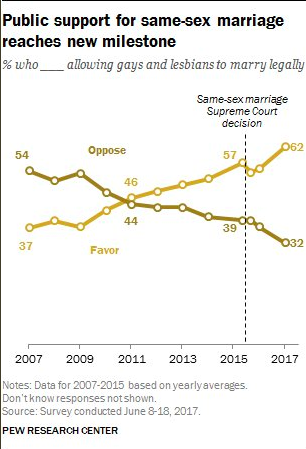What We’re Reading
A few good pieces the Collab team came across this week …
Volume
Netflix is not messing around:
Netflix, set to spend upwards of $8 billion on content in 2018, will have in the neighborhood of 700 original TV shows on the service worldwide this year, according to CFO David Wells.
On second thought
The speed in which this happened is amazing:

Economics
Breaking into the top 3 percent of most-viewed [YouTube] channels could bring in advertising revenue of about $16,800 a year. That’s a bit more than the U.S. federal poverty line of $12,140 for a single person. (The guideline for a two-person household is $16,460.) The top 3 percent of video creators of all time attracted more than 1.4 million views per month.
Ego
Yes:
It’s hard to play the long game when there is a visible negative as the first step. You have to be willing to look like an idiot in the short term to look like a genius in the long term. I believe that’s why so many people play the short game. But as the old adage goes, when you do what everyone else does, don’t be surprised when you get the same results everyone else does.
Brand
Dr. Edward Deming once said that the numbers that best define a company are two factors that do not appear on any financial statement. These factors are the value of a satisfied customer and the value of a dissatisfied customer. These factors must be multiplied by every other number in a financial statement in order to assess the prospects of the business. A high satisfaction leads to repeat purchases and referrals, growing the business; while a low satisfaction leads to ending relationships and a repulsion of potential new customers.
Incentives
Running a public company is hard:
We find that the more equity CEOs have vesting in a given quarter, the more they cut investment. This result holds for five different measures of investment and for both vesting stock and vesting options. In addition, vesting equity is positively correlated with the CEO just barely meeting analyst earnings forecasts — suggesting that it causes the CEO to focus on short-term earnings rather than long-term investment.
Have a good weekend.